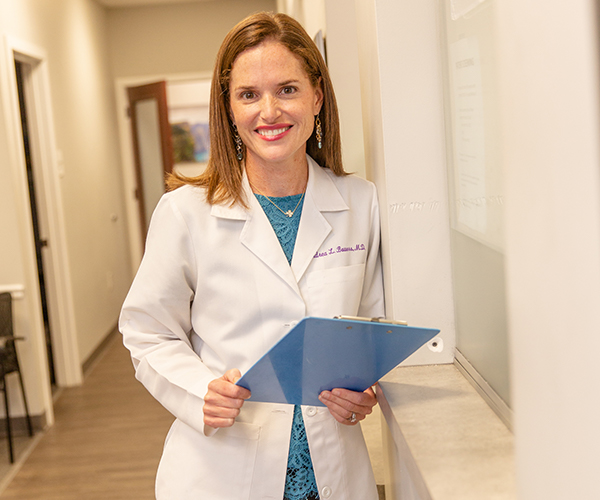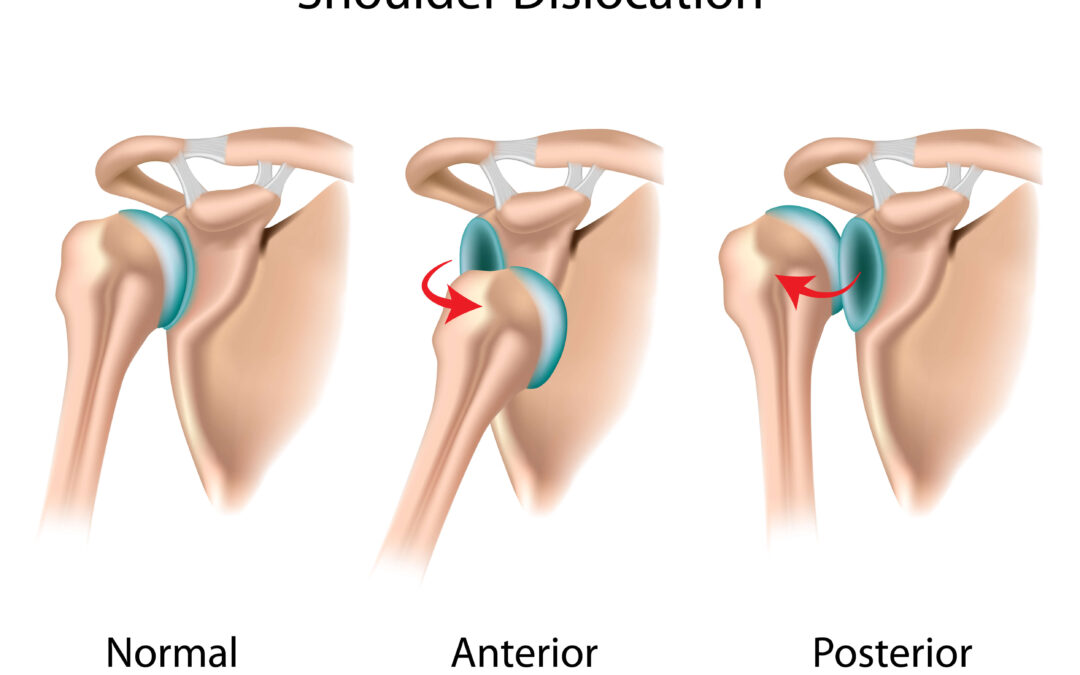A shoulder “dislocation” occurs when the ball at the top of the humerus (upper arm) shifts out of position relative to the socket, a.k.a. the glenoid. Usually a dislocation is a high energy injury that results from a sports collision, motor vehicle accident, fall from height, or even from a seizure. Sometimes the ball relocates into the socket on its own, and other times a formal reduction is required by an athletic trainer, an orthopedist, or in the emergency room.
Often when the shoulder dislocates, there is damage to the surrounding structures. The ball or socket can fracture as a result of the high-energy impact. In patients under the age of 30, it is common to see a tear of a cartilage liner in the joint called the labrum or the deepest tissue layer called the capsule. In patients over age 40, there is an increased risk for tearing of the rotator cuff or biceps tendon.
Examination by a medical professional is recommended along with x-rays to confirm the positioning of the ball relative to the socket or if there are any associated fractures. Initial treatment involves wearing a sling to support the shoulder and prevent it from the dislocating. Topical ice and anti-inflammatory medications are often used to control pain and swelling. Typically, depending on the x-ray findings, an MRI is ordered to evaluate for potential tearing of the labrum, capsule, or rotator cuff.
The ultimate treatment plan depends on the patient’s age, the MRI findings, and how many times the shoulder has dislocated. In certain circumstances, the shoulder can be successfully treated with a period of rest in the sling, activity modification, and formal physical therapy to recover range of motion and function of the arm. In younger athletes, especially males, the rate of the shoulder dislocating again is quite high, nearly 90%. Surgery is often recommended for this category to prevent repeat injuries or further damage to the shoulder in the long-term. If MRI has demonstrates a full-thickness rotator cuff tear, surgery is also likely to be recommended to repair the injured anatomy.
A shoulder dislocation is a significant traumatic event that should always be evaluated by an orthopedic surgeon. If you have sustained a new injury, or are experiencing difficulties from a prior dislocation, our fellowship-trained Sports Medicine specialists can help get you on the path to healing.

Andrea L. Bowers, MD
Dr. Bowers believes that patient comfort and education is paramount. She strives to guide her patients mentally, emotionally and physically to overcome pain and restore function and quality of life.
